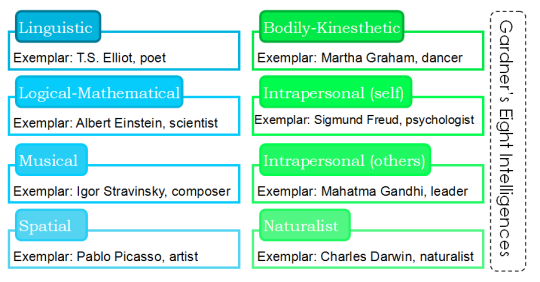#intelligence


This is so perfect.
Rogues And Spyware: Pegasus Strikes In Spain
Rogues And Spyware: Pegasus Strikes In Spain
Weapons, lacking sentience and moral orientation, are there to be used by all. Once out, these creations can never be rebottled. Effective spyware, that most malicious of surveillance tools, is one such creation, available to entities and governments of all stripes. The targets are standard: dissidents, journalists, legislators, activists, even the odd jurist.
Pegasus spyware, the fiendishly…

What is Intelligence?
- Intelligence: mental quality consisting of the ability to learn from experience, solve problems, and use knowledge to adapt to new situations
- It’s a socially constructed concept that differs from culture to culture.
- Controversies on intelligence: 1. Whether it is one overall ability or many, and 2. Whether neuroscientists can locate and measure intelligence within the brain.
- Toreify intelligence is to treat it as though it were a real object, not an abstract concept.
- Most psychologists now define intelligence as the ability to learn from experience, solve problems, and adapt to new situations.
General Intelligence
- Factor Analysis: a statistical procedure that identifies clusters of related items (called factors) on a test; used to identify different dimensions of performance that underlie one’s total score
- Enables researchers to identify clusters of test items that measure a common ability
- Charles Spearman, who helped develop factor analysis, believed there is also a general intelligence, or, g.
- General intelligence (g): a general intelligence factor that according to Spearman and others underlies specific mental abilities and is therefore measured by every task on an intelligence test
- He proposed that general intelligence is linked to many clusters that can be analyzed by factor analysis
Contemporary Intelligence Theories
- Howard Gardner disputes the idea of one general intelligence

- He proposes 8 independent intelligences: and speculates about a ninth one- existential intelligence which is the ability to think about the question of life, death, and existence.
- Brain damage may diminish one type of ability but not others.
- Savant syndrome: a condition in which a person otherwise limited in mental ability has an exceptional specific skill, such as in computation or drawing.
- Robert Sternberg’s triarchic theory proposes only 3 intelligences: analytical, creative, and practical intelligences.
Emotional Intelligence
- Emotional intelligence: the ability to perceive, understand, manage, and use emotions
- Emotionally intelligent people are self-aware
- Four components:

- Gardner and others criticize the idea of emotional intelligence and question whether we stretch this idea of intelligence too far when we apply it to our emotions.
Intelligence and Creativity
- Creativity: the ability to produce novel and valuable ideas.
- It correlates somewhat with intelligence, but beyond a score of 120, that correlation dwindles.
- Expertise: A well-developed knowledge base.
- Imaginative Thinking: The ability to see things in novel ways.
- Adventuresome Personality: A personality that seeks new experiences rather than following the pack.
- Intrinsic Motivation: A motivation to be creative from within.
- A Creative Environment: A creative and supportive environment allows creativity to bloom.
Is Intelligence Neurologically Measurable?
- Recent Studies indicate some correlation (about +.40) between brain size and intelligence.
- As brain size decreases with age, scores on verbal intelligence tests also decrease.
- Studies of brain functions show that people who score high on intelligence tests perceive stimuli faster, retrieve information from memory quicker, and show faster brain response times.
The Origins of Intelligence Testing
- Intelligence testing: a measure for assessing an individual’s mental aptitudes and comparing them with those of others, using numerical scores
- Alfred Binet and his colleague Théodore Simon practiced a more modern form of intelligence testing by developing questions that would predict children’s future progress in the Paris school system.
- Binet and Simon, set out to recognize a child’s mental age
- Mental age: the chronological age that most typically corresponds to a given level of performance
- Example: a child who does well as the average 8 year old, is said to have a mental age of 8
- In the US, Lewis Terman adapted Binet’s test for American school children and named the test the Stanford-Binet Test.
- Extended the test’s range from teenagers to “superior adults”
- German psychologist William Stern created the “Intelligence quotient” or IQ

Modern Tests of Mental Abilities
- Aptitude tests are intended to predict your ability to learn a new skill
- Achievement tests are intended to reflect what you have already learned.
- Wechsler developed the Wechsler Adult Intelligence Scale (WAIS) and later the Wechsler Intelligence Scale for Children (WISC), an intelligence test for preschoolers.
- WAIS measures overall intelligence and 11 other aspects related to intelligence that are designed to assess clinical and educational problems.
- Separate scored for verbal comprehension, perceptual organization, working memory, and processing speed
- Differences in scores can alert for possible learning problems or brain disorders
Principles of Test Construction
- For a psychological test to be acceptable it must fulfill the following three criteria: Standardization, Reliability, and Validity
Standardization
- Standardizing a test involves administering the test to a representative sample of future test takers in order to establish a basis for meaningful comparison.
- Standardized tests establish a normal distribution of scores on a tested population in a bell-shaped pattern called the normal curve. (bell curve)
- Normal curve: the symmetrical bell-shaped curve that describes the distribution of many physical and psychological attributes. Most scores fall near the average, and fewer scores lie near the extremes
- In the past 60 years, intelligence scores have risen steadily by an average of 27 points. This phenomenon is known as the Flynn effect.
Reliability
- A test is reliable when it yields consistent results. To establish reliability researchers establish different procedures:
- To establish reliability researchers establish different procedures:
- Split-half Reliability: Dividing the test into two equal halves and assessing how consistent the scores are.
- Reliability using different tests: Using different forms of the test to measure consistency between them.
- Test-Retest Reliability: Using the same test on two occasions to measure consistency.
Validity
- Reliability of a test does not ensure validity.
- Validity of a test refers to what the test is supposed to measure or predict.
- Content Validity: Refers to the extent a test measures a particular behavior or trait.
- Predictive Validity: Refers to the function of a test in predicting a particular behavior or trait.
The Dynamics of Intelligence
- Intelligence scores become stable after about seven years of age
- A valid intelligence test divides two groups of people into two extremes: the mentally retarded (IQ 70) and individuals with high intelligence (IQ 135).
- Mentally retarded individuals required constant supervision a few decades ago, but with a supportive family environment and special education they can now care for themselves.
- Mental retardation: a condition of limited mental ability, indicated by an intelligence score of 70 or below and difficulty in adapting to the demands of life; varies from mild to profound
- Down syndrome: a condition of retardation and associated physical disorders caused by an extra chromosome in one’s genetic makeup
Genetic Influences
- Studies of twins, family members, and adopted children together support the idea that there is a significant genetic contribution to intelligence.
- Adopted children show a marginal correlation in verbal ability to their adopted parents.
- Fraternal twins raised together tend to show similarity in intelligence scores
- Identical twins raised apart show slightly less similarity in their intelligence scores
- Heritability of intelligence refers to the extent to which variation in intelligence test scores in a group of people being studied is attributable to genetic factors.
- Heritability never applies to an individual’s intelligence, but only to differences among people
Environmental Influences
- Early neglect from caregivers leads children to develop a lack of personal control over the environment, and it impoverishes their intelligence.
- Siblings within impoverished families have more similar intelligence scores which means that among the poor, environmental conditions can override genetic differences.
- Schooling is an experience that pays dividends, which is reflected in intelligence scores.
- High-quality preschool programs can provide at least a small boost to emotional intelligence, which leads to a better attitude towards learning and reduces school dropouts and criminality.
- Increased schooling correlates with higher intelligence scores.
Ethnic Similarities/Differences
- There is a test score gap between races
- However, these group differences are most likely due to environmental differences
- Asian students outperform North American students on math achievement and aptitude tests. But this may reflect conscientiousness more than competence as well as Asian students attending school 30% more days
- Today’s better prepared populations would outperform populations of the 1930s on intelligence tests
- White and black infants tend to score equally well on tests predicting future intelligence
- Different ethnic groups have experienced periods of remarkable achievement in different eras
Gender Similarities/Differences
- Females are better spellers; at the end of high school, only 30% of males spell better than the average female
- Females are verbally fluent and have large vocabularies
- Females are better at locating objects
- Females are more sensitive to touch, taste, and color
- Males outnumber females in counts of underachievement
- Males tend to talk later and stutter more often
- Males outperform females at math problem solving, but underperform at math computation. However, girls are less likely to be encouraged to pursue STEM fields, but as more girls get encouraged this gap is decreasing
- Females detect emotions more easily than men do
The Question of Bias
- Aptitude tests are necessarily biased in the sense that they are sensitive to performance differences caused by cultural differences.
- However, aptitude tests are not biased in the sense that they accurately predict performance of one group over the other.
- A stereotype threat is a self-confirming concern that one will be evaluated based on a negative stereotype.
- Stereotype threat explains why women do better in math tests when men aren’t in the room
Q: Why does my cat understand so many of the words that I say and I understand almost none of his vocalizations? A: There are a lot of factors at play here, so if you want a TLDR answer, you’re out of luck. First, some basics: Some cats are smarter than other cats. And there is a lot we don’t know about animals and cognition. And because cats in particular can’t be bribed reliably with food or a…

Continuing from Part 1, where I explained how we came to keep Stiles, and his relationships with our other cats… Kiki loves elephants and whales, and especially loves watching them if David Attenborough is narrating. She taught Stiles this love of whales, elephants, and David Attenborough from an early age. He’s particularly fond of baby elephants. He hops up on my desk to watch the You Tube…

Today is Stiles’s 2nd birthday. I’ve tried so many different times to figure out how to tell Stiles’s story, and how much he has come to mean to me. I touched on his story a bit when I wrote about his mother, Freya, and also when I wrote about Kagetora. But those mentions barely scratch the surface. I’m going to break this up into several parts since it would make a blog post that is way too…
Q&A How do cats see themselves and us?

Q: Do Cats Think They’re Humans? A: I’m not exactly sure where you got this idea, but it’s a rather simple answer: No. So why bring it up? Because there’s this ridiculous related notion that cats think that we are strange-looking cats. By that logic, they would have to think that their dog friends, bunny friends, and other animal friends are also strange-looking cats, but we know they don’t. Cats…
Where Do Domestic Cats Come From?
SciShow delved into some very interesting cat topics in the past few weeks, and I thought they were worth sharing.
RCRS: The World’s Only Feline Astronaut

Real Cats, Real Stories is back with a blast from the past. Did you know that a cat went to space? Félicette, a beautiful black and white stray, underwent training along with 13 other cats in France. In the late 50s and early 60s, the space race was starting to heat up. And although we often think of this as a competition between the United States and the Soviet Union, there were other players in…
Wacky Wednesday! If My Cat Were Bigger, Would He Kill Me?
Q: If my cat, who is a gentle house cat, suddenly became as big as a lion, would he kill me? A: That depends on a lot of factors like age, activity level, if he’s neutered, how he plays with you, his personality, and your bond. If he’s young, and very exuberant about play, and is serious about his aggression toward toys, then it’s a possibility. If he was taught (or not corrected—gently and…
Q&A: Are Cats Underrated or Misunderstood?

Q: Are cats the most underrated pet? A: I don’t think they are underrated per se, but they are the most misunderstood pets. When you regularly hear veterinarians and other animal experts repeating myths about cats, it is a sign that those of us who have dedicated our lives studying the little floofy predators have our work cut out for us. I’ve had to correct my cats’ veterinarians on several…
how what???
I’m not good with the science of this or anything (someone who knows more feel free to add) but fish can play??? Fish can play like any other animal?? People saying it couldn’t breathe, do human kids not hold their breaths to go under water for fun? It’s just the opposite. Air is water, water is air. In the same vein as a kid being thrown up and into the pool and enjoying it, the fish is playing.
okay… as someone who studies marine biology I need to clarify something:
fish are unable to hold their breaths. They literally cannot take a deep breath like mammals do.
We have lungs that can take in a specific volume of air, fish have gills that work when they are ventilated enough. There are different kinds of gills, yes. Some fish have something called ‘operculum’ which is like a cap on top of the gills, helping to protect them and increasing the water circulation through the gills. Some fish DONT have this structure and need to swim in order to be able to breathe.
But the fact that they cannot hold their breaths doesnt mean that they cannot survive without water for a while - in fact, fish can (usually) survive being without water WAY LONGER than we could survive being without air.
I cannot tell if this fish does this for fun, but it sure looks like it. But I am not a behavioural biologist, so I can’t tell for sure.
It is abundantly clear the fish is a willing participant. It’s sort of arrogant to assume animals other than humans don’t play like humans.
Im not a behavior biologist either, but I have spent a lot of time around fish and ive spent a lot of time talking to and helping people that care for fish. (Former petstore fish guy that took his job too seriously)
That fish is having fun, and fish absolutely DO have fun!
There was a regular who came into the store I worked at a lot, and he kept several varieties of chichlids, a very smart, aggressive type of fish.
He would come in and talk to me about all the drama his fish get into. The different territorial disputes they were having, who had paired off with who, who broke up (yes chichlids are like this)
But he had a jack dempsey in particular that LOVED to chase his hand around the tank, not his wife’s hand, not his friend’s hand, it HAD to be him. He said that as soon as he entered the room where this fish’s tank was kept, the fish would TEAR UP the tank decor, knocking things over and acting a fool off his shits until this dude stuck his hand in there and let the fish chase it around back and forth.
He theorized that his fish learned that if he knocked the tank decor around, his owner would obviously have to stick his hand in to fix it. So when he wants to play “chase dad’s hand” thats naturally how he knows he can get the hand to appear. He wont do this behavior for anybody but this one guy and he won’t tear up the tank anymore after he had received sufficient “play time”, usually once a day when the guy got home from work. He likened it to having a dog that wont leave you alone till you play tug o war for a bit.
I had a betta that would spend twenty minutes at a time just swimming up to the waterfall of the filter, letting it push him down to the bottom of the tank, only to swim back up and do it again, like it was a fucking slide.
Bettas are weak swimmers, and they dislike strong currents, but this guy was using the filter current like a slide. Kinda like how we don’t really like getting thrown around, but we still enjoy rollercoasters.
I also have countless stories about goldfish trying to “give hugs” (re: shove themselves into their owners hands during tank maintenance)
My betta knows how to lie and he will only beg for food in front of those he knows have not fed him yet.
There is so much evidence I’ve seen that fish are waaaay smarter and affectionate than we think. They absolutely have fun and I honestly don’t think enough studies have been done on fish brains and fish behavior in general.
And honestly, having worked in a pet store, fish are generally treated like they don’t have brains by even the fish care brands that claim expert knowledge.
Its definitely worth noting that hard scientific evidence presenting that the very opposite is true would probably lead to more robust animal welfare laws that would definitely upset the aquatics industry. Food for thought.
I think you’re absolutely right on that last point. The misconception that fish are too thoughtless to have feelings facilitates the abhorrent conditions in which they are kept and ways they are treated by the industry.
I used to have a lovely tank, I think it was 50 gallons, and among other things I kept glass catfish. All the research at the time said they were hard to keep in captivity and prone to refusing to eat and starving themselves, and that they did not live long in captivity. But I was fascinated and had to try it. It took me about three days to realize none of the literature said a word about them being nocturnal. I started feeding them at night right before bed, and had zero problems getting them to eat, saw they were incredibly active as soon as the lights went off (I have exceptional night vision) and I kept them in excellent health for years. Exponentially beyond their captive life expectancy.
I think the commercial pet fish trade is abysmal in terms of actual working knowledge of fish.
Fish Intelligence (a link at which you will also learn there is a fish called the bony-eared assfish) has been studied on a pretty broad scale, actually and there’s a lot of scientific evidence to suggest that they are very smart creatures.
Meet the triggerfish, one of the most voracious and intelligent marine hunters! Studying their unique problem solving skills could help us understand how intelligence evolves.
Intelligence is an excellence of mind that is employed within a fairly narrow, immediate, and predictable range; it is a manipulative, adjustive, unfailingly practical quality…Intelligence works within the framework of limited but clearly stated goals, and may be quick to shear away questions of thought that do not seem to help in reaching them. Finally, it is of such universal use that it can daily be seen at work and admired alike by simple or complex minds.
Intellect, on the other hand, is the critical, creative, and contemplative side of mind. Whereas intelligence seeks to grasp, manipulate, re-order, adjust, intellect examines, ponders, wonders, theorizes, criticizes, imagines. Intelligence will seize the immediate meaning in a situation and evaluate it. Intellect evaluates evaluations, and looks for the meanings of situations as a whole…When the difference is so defined, it becomes easier to understand why we sometimes say that a mind of admittedly penetrating intelligence is relatively un-intellectual; and why, by the same token, we see among minds that are unmistakably intellectual a considerable range of intelligence.
—Richard Hofstadter, “Anti-Intellectualism in American Life”
“If by intellectual you mean somebody who works only with his head and not with his hands, then the bank clerk is an intellectual and Michelangelo is not. And today, with a computer, everybody is an intellectual. So I don’t think it has anything to do with someone’s profession or with someone’s social class. According to me, an intellectual is anyone who is creatively producing new knowledge. A peasant who understands that a new kind of graft can produce a new species of apples has at that moment produced an intellectual activity. Whereas the professor of philosophy who all his life repeats the same lecture on Heidegger doesn’t amount to an intellectual. Critical creativity — criticizing what we are doing or inventing better ways of doing it — is the only mark of the intellectual function.”
~ Umberto Eco (“The Art of Fiction, No. 197”, The Paris Review/Summer 2008, No. 185, Art by Michael Taylor)
~ Ps. My dad always said:“You cannot learn to be ,intelligent’, no school or academic title give you that… With ,intelligence’ you can only born. That’s why we have many educated people, so many times more stupid than these without education, and only few, over the centuries, so-called: geniuses.” I agree with that… I think Eco was one of the few geniuses in our century we had honor to know up close.
Post link
#GoddessBodyFAQ
You really shouldn’t perform sort of #cleanse or #detox while #preggers . The focus should be on growth through nutritives, not release. The body #intelligence actually de-toxes itself during the first trimester.. I.e. #Morningsickness and the like.
___________________✨____________________
While pregnant you can take the following #GoddessBody Inc. individual products:
1. Elixir of Light herbal Extract (no more than 3x per week)
2. Beauty Eternal herbal Extract
3. Healthy #Yoni herbal Extract
4. Yoni wash
5. #yonioil can only be used under & throughout labia & not inside vaginal
Canal until 4-6 weeks post partum.
___________________✨____________________
However once again, you should not perform the #GoddessBodyCleanse #herbaldetox system until 4-6 weeks postpartum, as some of the herbs may cause premature uterine contractions. Others are anti-parasitic ridding worms that may be residing in the colon but the fetus acts somewhat like a parasite in the mothers body! Therefore, it’s best to focus on clean eating and the babies growth and development, rather than “releasing” ( #Cleansing while #breastfeeding WITH OUR SYSTEM is ok though). ___________________✨____________________
Yours in Health,
Angela Elizabeth MS CHHP
Holistic Biologist Multi Genius ☥ www.GoddessBody.net
#holistichealth #womenshealth #naturalproducts #organicproducts #organic #pumpum #goddessbody #femininehealth #prenatalcare #womenshealthcare
#YoniOil
#YoniWash
#GoddessYoniOil
#GoddessYoniWash
#GoddessBody
https://www.instagram.com/p/B5TWik-j4P3/?igshid=1mgfksieb4uw1
Post link
Ne pas céder à la haine, ne rien concéder à la violence, ne pas admettre que nos passions deviennent aveugles, voilà ce que nous pouvons faire encore pour l'amitié et contre l'hitlerisme. Aujourd'hui encore dans quelques journaux, on se laisse aller à la violence et à l'insulte. Mais alors c'est à l'ennemi qu on cède encore. Il s'agit au contraire pour nous de ne jamais laisser la critique rejoindre l'insulte, il s'agit d'admettre que notre contradicteur puisse avoir raison et qu'en tout cas ses raisons même mauvaises, puissent être désintéressés. Il s'agit enfin de refaire notre mentalité politique.
Qu'est ce que cela signifie, si nous y réfléchissons ? Cela signifie que nous devons préserver l'intelligence. Car je suis persuadé que là est le problème. Il y a quelques années, alors que les nazis venaient de prendre le pouvoir, Goering donnait une juste idée de leur philosophie en déclarant: “Quand on me parle d'intelligence je sors mon revolver.”
Albert Camus, in Conférences et discours, texte publié en 1945.
Basing your self worth on your intelligence is a dangerous thing because there will always be someone smarter than you and challenges that seem too great for your intellectual abilities. The stakes become too high and the pressure too great.













